#girlguiding uk
Text
Mary Putnam Jacobi
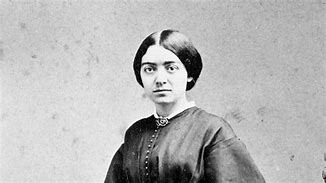
Firstly, I want to talk about Mary Putnam Jacobi, MD, born in 1842, who’s medical career was filled with many firsts. In a time before coeducation in medical school was wide spread, Mary fought for equal access to clinical experience in schooling and created the Association of Advancement of Medical Education of Women, dedicated to addressing commonplace inequalities at the time.
Her most renowned work involved a paper written to combat a male doctor’s misunderstanding of menstruation, where he claimed that exertion during a period could become dangerous. Her paper received an award from Harvard university- the Boylston Prize- and is testament to the importance of women in healthcare. She was the first woman to win this prize, as well as the first woman to study at l’École de Médecine in Paris, and the first woman to be accepted into New York Academy of Medicine.
In her dying days, she wrote a paper titled ‘Symptoms of the Meningeal Tumor Compressing the Cerebellum. From Which the Writer Died. Written by Herself.’ In 1993, her legacy was immortalised as she was inducted into the National Women’s Hall of Fame.
Thank you for reading! See you tomorrow!!
#girlguiding#womens rights#girlguiding uk#blogging#mary putnam jacobi#medicine#women in medicine#badge#rangers#gg rangers
4 notes
·
View notes
Text
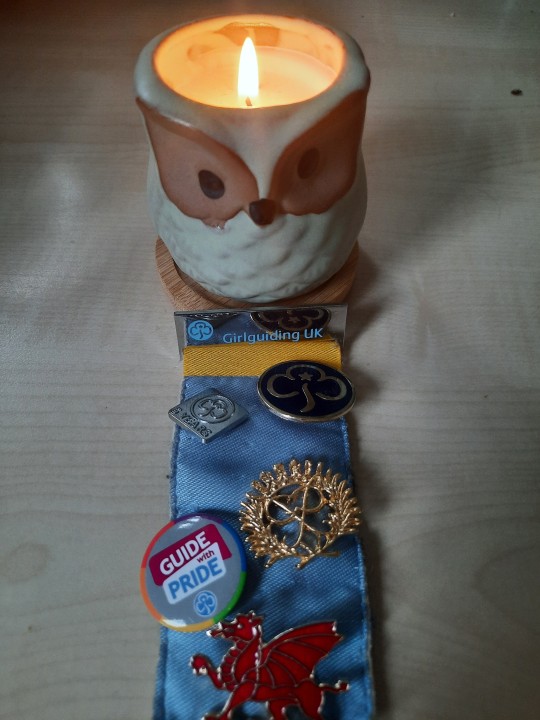
8 notes
·
View notes
Text
She inspired millions of girls.
0 notes
Text
Sparkle & Ice 2022: the warmest Sparkle ever!
Sparkle & Ice 2022: the warmest Sparkle ever!
Sparkle & Ice is my favourite of Girlguiding’s large-scale events. That’s partly because I’m a polar bear and I like things that are meant to be cold and/or wintery and partly because I like the weirdness of it. We don’t generally camp in the winter, because we’re not tough enough and the girls certainly aren’t and yet we hold this event every winter – and this year it’s happening simultaneously…

View On WordPress
1 note
·
View note
Text
Westminster city council and Social Work England last week became the latest to join a list of organisations – including Arts Council England, a barristers’ chambers and a thinktank – found to have discriminated against a female worker because of their gender-critical beliefs.
The social worker Rachel Meade’s winagainst the council and her profession’s regulator means she joins a select but growing group of gender-critical feminists who have successfully brought discrimination claims on the basis of their beliefs.
Gender-critical feminists believe sex is biological and cannot be changed, and disagree with trans rights activists who say gender identity should be given priority in terms of law-making and policy. Clashes in workplaces – in some cases with those who regard the focus on biological sex as transphobic – have led to a string of employment tribunals.
On Monday, a tribunal began hearing a constructive dismissal claim from Roz Adams against Edinburgh Rape Crisis Centre. Next month, Kenny McBride’s case against the Scottish government is due to be heard in Glasgow, while judgments are pending in a claim from Prof Jo Phoenix against the Open University and that of the Green party’s former deputy leader Shahrar Ali against the party.
In all four cases – and more in the pipeline – the claimants argue they were discriminated against because they hold gender-critical beliefs.
They hope to follow in the footsteps of the barrister Allison Bailey, and of the researcher Maya Forstater who obtained a landmark judgment in 2021 that her gender-critical beliefs were a protected philosophical belief under the Equality Act. The campaign group Sex Matters, founded by Forstater, has identified at least 19 current cases.
After the Meade case last week, which like several others involved disciplinary action being initiated against an employee as a result of social media postings, Westminster council said it would “consider what changes we need to make”. For the local authority it comes too late to prevent a payout, but other employers may need to learn from it.
Lucy Lewis, a partner at the law firm Lewis Silkin, said that on such a politically charged issue, employers could feel they must act quickly after a complaint.
“Because this has become a politically toxic issue, there’s a sort of temptation [on the part of employers] to take a kneejerk reaction rather than the considered view of actually, what is the impact, is there another way we can address this [other than disciplinary proceedings or suspension]?
“People are being influenced by the very public and political dialogue on this and actually there’s value in just taking a step back and understanding all the factors.”
Georgina Calvert-Lee, an employment and equality barrister at Bellevue Law, agreed that the wider debate – in which gender-critical feminists and advocates of transgender rights have been at loggerheads – may have influenced employers, but said they must adjust their behaviour in light of the case law.
“What Forstater and Bailey have done is they’ve set this very strong precedent of tolerance,” Calvert-Lee said.
“Above all, in a pluralistic society, which is what we want, you have to accept that people are going to have different views and some people are going to find their colleagues’ views completely obnoxious – but nevertheless protected because freedom of speech is something that … has been really promoted and underlined.
“It’s always been there but it’s been sort of forgotten in some of these culture wars.”
After settling a case with a gender-critical volunteer, Katie Alcock, Girlguiding UK said it remained “a home for trans people” but added: “We agree that sex and gender are different, and will reflect this in the language we use.”
After another case that was settled out of court, brought by the student James Esses, who was thrown off his course for expressing gender-critical views, the UK Council for Psychotherapy conceded it was a valid professional belief that children suffering from gender dysphoria should receive counselling rather than medical intervention and people should not be discriminated against for such beliefs. Esses’ case against the Metanoia Institute continues.
Calvert-Lee said the cases to date showed the importance of employers training staff “about what is acceptable and what’s not and what amounts to harassment and what probably doesn’t – the sort of respect they should give to each other”, as well as giving training to those staff investigating complaints.
“Whenever there’s some sort of complaint which involves a belief that’s basically pitted against another belief, they [the investigator] have to be completely neutral,” she said. “It’s not on for the investigator to come to it very overtly with their own value judgment.”
The tribunals have made clear that it is not a free-for-all but a balancing exercise. For instance, David Mackereth – an outlier in that he lost his case based on gender-critical beliefs – was found to have crossed the line by misgendering service users at the Department for Work and Pensions, making its decision to dismiss him reasonable.
Calvert-Lee believes the recent increase in cases will ultimately be a blip rather than a growing trend, as workplaces become more aware of the need to handle complaints and concerns more carefully.
The events that led to Meade’s claim came “just weeks before the Forstater employment appeal tribunal decision was given”, she said, and the results of the Forstater and Bailey cases would mean “employers will have training, and so they’re likely to fall off, you’re likely to have fewer cases”.
Lewis said there would always be “bad eggs” but compared the situation to legal cases on manifestations of religious belief at work, such as wearing a cross.
“You have a flurry of cases and people that aren’t lawyers … wonder why those cases go away,” she said. “In a common law system like ours, you have cases that set out some of the principles employment tribunals need to consider and then really good organisations like the CIPD [Chartered Institute of Personnel and Development] take all that reasoning, they give advice and training to employers and then employers are clear about what they need to do, how they should manage this kind of conflict in the workplace.”
She added that the media attention afforded to gender-critical cases perhaps suggested that they were more common than they really were. In fact, she suggested there were likely to be a greater number of claims brought by transgender people alleging harm, though many go unreported.
“The overwhelming majority of employers are not setting out to discriminate; they’re not just thinking ‘well all people with gender-critical views are bad, so we’re just going to get rid of them’,” said Lewis.
“They just have got strong alternative views in the workplace and they haven’t known how to navigate through that conflict.”
32 notes
·
View notes
Text
Hello people!!!
Sorry for being gone such a long time I’m back now I’ve been very busy with A-level work but I’ve finally found some time to sit down and carry the on !!
This post is about Girlguiding and my journey 
Girlguiding is the UK’s largest youth organisation dedicated completely to girls.
There are 4 sections: Rainbows, Brownies, Guides and Rangers (then you have your young leaders, leaders and trefoil)
I am currently a young leader with rainbows and a ranger.
(I volunteer at two rainbow units. At one unit I’m know as kiwi and at the other unit I’m fox 🦊)
I joined when I was eight years old. As a brownie. I am now 17 years old. 
I have done so much with Girlguiding and I love it. They have done so much to help me boost my confidence. I’ve Have lots of fun and giving me experiences of a lifetime. 
We go on trips, have sleepovers, go on camp, earn badges and even go on international trips!
My favourite part of Girlguiding is probably the campfires because I love to sing and dance around them with my friends and eat s’mores.
Here is a picture of my camp blanket. Here I keep all my badges.
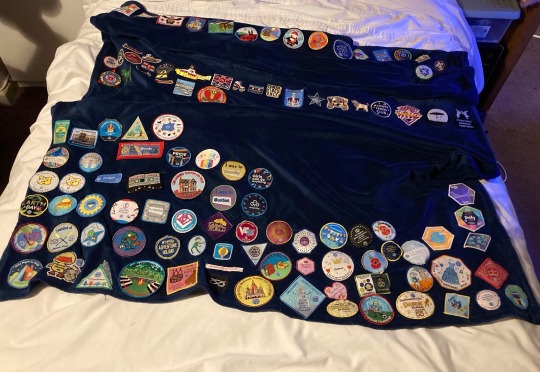
And here is a picture of all the things I have to sew one.
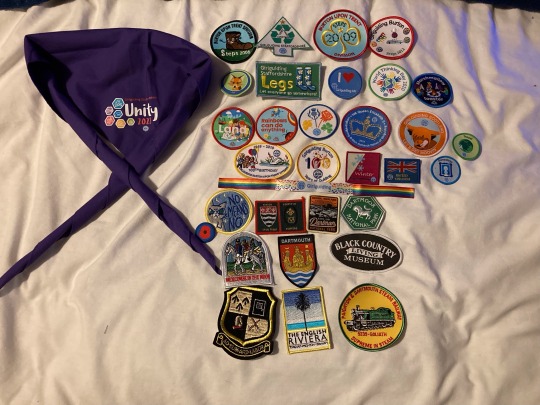
2 notes
·
View notes
Note
Girlguiding (uk) literally has a blogging badge and one of the activities is interview your favourite blogger on how they tackle online hate and stuff. Even I wasn’t parasocial enough to attempt that one
Siidiqisqniriq8xjwoqosjqnd..... Ohhhmygod. I cannot begin to imagine
#mutuals i would interview for the blogging badge..#asks#anon#thank u for sharing this wild info anon
7 notes
·
View notes
Note
I see it is time to teach you about the Canadian Treats And Snacks
Ketchup Chips - potato chips with a salty tomatoey dust on them, they're okay-ish but I prefer all dressed
Poutine - originally just frenchfries with gravy and cheese curds, but now you can get themed poutine (instead of gravy you can now get it with pulled pork, sometimes a taco themed one w ground beef n salsa, chili on top is a common one too)
Nanaimo Bars - A three-layered dessert often sold at bakesales or eaten during christmas. The bottom layer is like a soft cookie with chocolate and coconut (and sometimes nuts), the middle layer is like a custard, and the top layer is a very thin layer of milk chocolate! They're then cut into rectangles or squarwa.
Maple Syrup - tha syrup from tha maple tree, thicker than other syrups (in girlguides, canadian girl scouts, its common to get a clean sheet of snow and roll the snow up on a popsicle stick along with maple syrup to make like a frozen syrup popsicle)
Beaver Tails - fried, airy dough that's in the shape of a beaver tail. Often surved with icing sugar or cinnamon-sugar on top! It's our fair food!
Fry Bread - fry bread is just bread made by frying it in a pan, it can be eaten with sweet foods like honey or jam OR it can be eaten with beef and vegetables. Fry bread has a very complicated history too. If I remember correctly, it was introduced to the Navajo by the colonizers when forcing them to move territories. It kept them from starving, but deprived them of needed nutrients. It's still made today, though i haven't had it myself.
Canada Dry Gingerale - a white pop (or "soda") that's similar to sprite but it's better, it's like the ultimate mixer
Coffee Crisp - a chocolate bar with wafers in it and a slight coffee flavor. In the UK, they have the same thing made by the same company but its called "Toffee Crisp" and its just the same but toffee flavored.
Hawkins Cheezie - similar to cheese puffs but crispier and crunchier and the cheese flavor is overpowering (in a good way some how)
Hawaiian Pizza - This is just pineapple and ham on pizza, which I thought was an American food?
oh these all sound fantastic honestly. and yeah i think hawaiian pizza is an american invention? honestly i don't know lol. i did know that one and a few others, but beaver tail had me completely stumped.
#i wanna try a nanaimo bar now#anyway i 100% thought beaver tail was an actual beaver's tail for a hot second#but i figured that probably didn't make sense#aren't real beaver tails just fat reserves anyway. well i guess people do eat that kind of thing#animal fat is a bad sensory experience for me so i can't quite imagine how people would eat it but#i digress#i might be very wrong lol
5 notes
·
View notes
Text
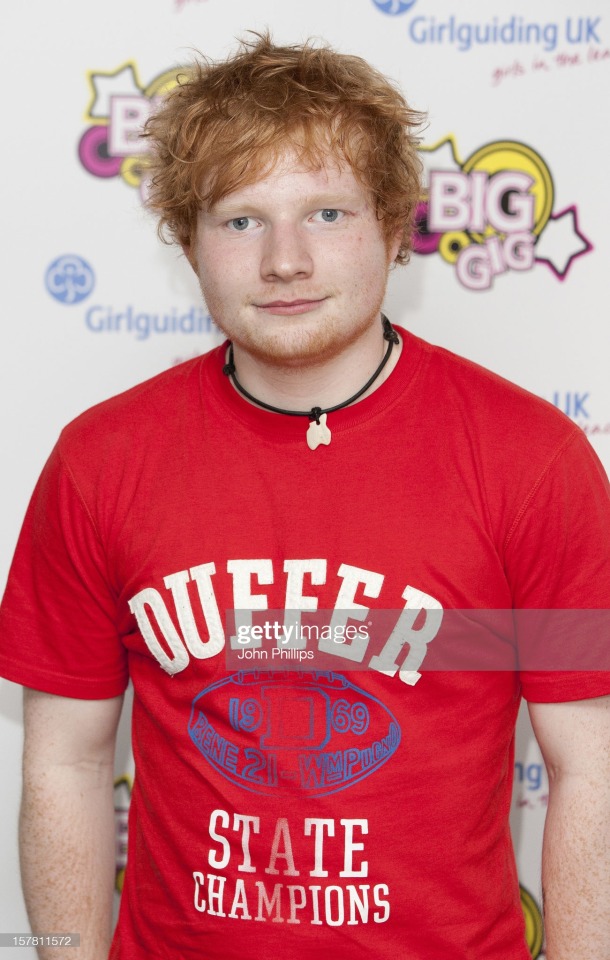


Girlguiding Uk'S Big Gig At Wembley Arena In London
📸 John Phillips
3 notes
·
View notes
Text
Girlguiding launch their asks to the next government
New Post has been published on https://petn.ws/0AbBT
Girlguiding launch their asks to the next government
GIRLGUIDING, the UK’s largest youth organisation dedicated completely to girls, has recently set out how the next government should better prioritise the needs, happiness and safety of girls and young women. Ahead of the general election, the charity is calling for the government to listen to girls and act on the issues that matter […]
See full article at https://petn.ws/0AbBT
#OtherNews
0 notes
Text
Edith Pechey
Finally, I want to talk about someone a little bit closer to home. Dr Edith Mary Pechey was the first female doctor in Yorkshire, and was part of the Edinburgh Seven. She joined a campaign started by Sophia Jex-Blake to study medicine. They became the first female undergraduates studying medicine in the UK, however struggled in their fight to graduation, and she instead began studying at a university in Ireland for midwifery. She practised in Leeds for 6 years, before moving to India to attend to female patients who were unable to be treated by male doctors.
Her work in India involved counterracting prejudice against women, while also educating and training women in association with a women and girls trut.
Her work, remembered by a blue plaque and an honorary post humous MBChB, opened up the world of medicine to throusands of girls and women in the UK, and undoubtably improved the lives and prospects of her patients abroad, in the past and still today.
Thank you so much for reading! See you soon!
#womens rights#blog#gg rangers#girlguiding#girlguiding uk#badges#badge#blogging#women#women in medicine#medicine
2 notes
·
View notes
Text
Zoella Net Worth

Zoella Net Worth Zoella Net Worth (2024)Zoella is a British media personality, entrepreneur and author who rose to fame with her YouTube channels and her beauty and lifestyle products.Zoe Sugg has an estimated wealth of £4.7 million, according to Heat Magazine’s annual guide to the UK’s wealthiest stars.Zoella earns £600,000 a year from her two lifestyle channels, Zoella and MoreZoella, which have a combined subscriber base of over 16 million.She can also earn upwards of £12,000 per sponsored Instagram post, where she has over 9 million followers..Zoella has launched several successful product lines, such as Zoella Beauty, Zoella Lifestyle and Zoella Book Club, which have generated millions of pounds in sales.She has won numerous awards and accolades for her work, such as the Teen Choice Award for Choice Web Star: Fashion/Beauty, the Nickelodeon Kids' Choice Award for UK Favourite Vlogger and the Glamour Award for Best British Vlogger.Zoella has announced that she is expecting her first child with her long-term partner and fellow YouTuber, Alfie Deyes, in September 2024.She has been involved in various charitable and social causes, such as Comic Relief, Mind, Girlguiding and the Prince's Trust.She has written four bestselling novels, Girl Online, Girl Online: On Tour, Girl Online: Going Solo and The Magpie Society: One for Sorrow, which have sold over 3 million copies worldwide.Next: DanTDM Net Worth (2024)Swipe Up^
Read the full article
0 notes
Text
Girls in north of England feel less happy, confident and safe than those in south, Girlguiding study finds | UK News
Girls in north of England feel less happy, confident and safe than those in south, Girlguiding study finds | UK News
Girls and young women in the north of England feel less happy, confident and safe than those in the south of the country, research has found.
Those from the North were less likely to feel safe in public and also felt gender stereotypes hold them back at school, according to a survey by the charity Girlguiding.
They were also significantly less happy with their lives than those in London and the…

View On WordPress
0 notes
Text
I didn’t qualify at Try Inspire Qualify!
I didn’t qualify at Try Inspire Qualify!
That’s a total clickbait title – for the first time, I deliberately didn’t book a qualification at Try Inspire Qualify because there were none I wanted to do that I haven’t already done.
Try Inspire Qualify has a lot in common with Camp Wildfire, actually: a lot of adults taking the weekend off being responsible to act like Guides(/Scouts) and do adventurous activities in the grounds of a…

View On WordPress
0 notes
Text
3 minute read
Girls say they are being denied toilet breaks and given detention for taking too long in the loo while on their periods.
Young women told The Independent they struggled to access free products in schools and were having “awkward” conversations with “insensitive” teachers about their periods. They also raised concerns about not being taught about menstruation and said they were bullied by male classmates over their periods.
It comes as damning new research, carried out by a coalition of UK charities campaigning against period poverty, found six in 10 girls have found it difficult to go the toilet while on their period during lessons.
It found a third of young people are skipping school due to struggles to access period products as well as the stigma around menstruation in schools. This is estimated to amount to over three million school days missed each year.
The study, which Bloody Good Period, Irise, In Kind Direct, Cysters, and Freedom4Girls contributed to, found a quarter of girls said they were forced to state exactly why they need the loo.
Some 44 per cent of girls struggle to access free period products at school, while the same amount said they feel too embarrassed to request period products at school, and a quarter reported feeling too humiliated to tell a teacher when they began their period.
The research has been launched to coincide with a new campaign fronted by young activists backed by Girlguiding among others championing “period dignity” in schools called Every Period Counts.
Caitlin Vaughan, an 18-year-old student who lives in Sheffield, told The Independent: “Teachers can be insensitive about periods and lack sympathy and compassion.”
Ms Vaughan noted period products were available in both her secondary school and sixth form but it was a struggle to get them as she warned it was “uncomfortable” requesting a pad or a tampon in front of the class.
She added: “If it was a male teacher, it would be a really awkward conversation. The whole nature is it is a taboo subject.
“Then the teacher would refer you to the head of year or someone who had products available in their office. It was very lengthy, complicated, and exhausting - especially if you have PMS or cramps and you are walking everywhere. We would have to trek around the school just to get a pad or a tampon.”
Ms Vaughan said she briefly learned about periods at primary school but had not been taught about menstruation during secondary school or sixth form other than in biology class. The lack of education meant periods “felt scary” to some girls, she added.
April Dagnall, 22, told The Independent she and her friend were given detention by a female teacher for arriving two minutes late to a lesson as her friend was in the toilet changing a period product.
“We did say when the class had left, we were in the toilet because she was on her period, but she didn’t care,” she added. “She just gave us lunchtime detention.”
Ms Dagnall also said she was banned from going to the toilet by teachers even when she explained she was on her period.
“But most girls won’t say as during secondary the lads will bully you over your period,” she said. “They make little comments like ‘you smell’.”
Rachel Grocott, chief executive of Bloody Good Period, told The Independent they were routinely contacted by students who have been stopped from taking toilet breaks as well as those who've been “publicly interrogated” by teachers as to why they need to go to the bathroom, or shamed by other students.
She noted menstrual cycles were “especially likely to be changeable” and often “hard to predict” at this age.
“During my year 10 English Language exam, I leaked on my exam chair and went two hours sitting and not saying a word,” Tilly, a 16-year-old girl from Cardiff, said. “At this time, products were hidden away in the cupboards, and none were available in the exam venue. At the end of the exam, I broke down as I didn’t know what to do. My school had locked the girls’ toilets, and we only had one unisex toilet.”
Researchers also found 13 per cent of girls said their school or college failed to offer free period products at all, while just over half stated they were never taught how to use them in school or college. The government announced in spring 2019 that girls would be given free sanitary items in schools from early 2020.
19 notes
·
View notes
Text
Chief Scout for India Sandeep Marwah in United Kingdom
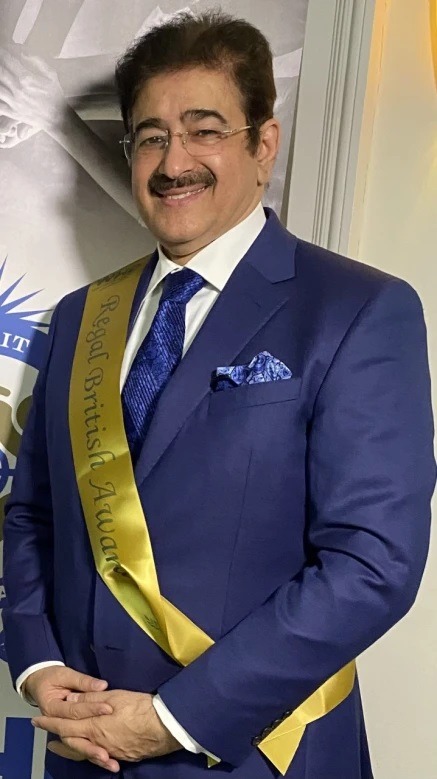
London: I on my behalf and on the behalf of Scout Guide Foundation India extend our heartiest congratulation to King Charles III for taking over the charge of United Kingdom.
King Charles III is King of the United Kingdom and 14 other Commonwealth realms. He acceded to the throne on 8 September 2022 upon the death of his mother, Elizabeth II. He was the longest-serving heir apparent in British history and, at the age of 73, is the oldest person to assume the British throne.
On January 24, 1908, the Boy Scouts movement begins in England with the publication of the first instalment of Robert Baden-Powell’s Scouting for Boys. The name Baden-Powell was already well known to many English boys, and thousands of them eagerly bought up the handbook.
Guiding began in the UK in 1910, when Robert Baden-Powell, founder of The Scout Association, established a separate organisation for girls. The Guide Association was a founding member of the World Association of Girl Guides and Girl Scouts (WAGGGS) in 1928. Girlguiding is supported by around 100,000 volunteers.
Bear Grylls has inspired thousands of young people to gain new skills since becoming Chief Scout in 2009. Bear Grylls was the UK’s youngest ever Chief Scout when he was appointed in 2009, aged 34. Today, he remains the public face of the Scouts in the UK.
0 notes